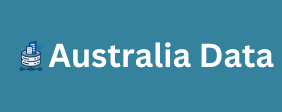The Internet Archive team, its partners and enthusiasts recently shared updates on how the As in Boston many organization is empowering research, ensuring preservation of vital materials, and extending access to knowledge to a growing number of grateful users In working with their students .
It s important for us to recognize that
the Internet Archive is a library. It’s a research library in the role that it plays, in the way that it works,” said Brewster Kahle, founder of the Internet Archive.
With the rise of misinformation and new artificial intelligence technologies, reliable, digital information is needed more than ever, he said.
“This is going to be a challenging time in the United States when all of our institutions — the press, the election system, and libraries — are going to be tested,” Kahle said. “It’s time for us to make sure we stand up tall and be as useful to people in the fresh mobile database United States and to people around the world who are having some of the same issues.”
To provide citizens everywhere with free access to government data, documents, records, the Archive launched Democracy’s Library last year. The collection now has 889,000 government publications, with many more items donated but yet to be organized, said the Archive’s Jamie Joyce at the forum. The goal is to digitize municipal, provincial, state and federal documents, along with datasets, research, records publications, and microfiche so they are searchable and accessible.
The Archive is taking a leadership
role in harnessing the power of AI to make its information easier for users to find, Kahle added. It is also preserving state television newscasts from Russia and Iran, along with translations, to allow researchers to track trends in coverage
Thomas Padilla, deputy director of data archiving and data services at the Internet Archive, reported on a project that examines how libraries can support responsible use of collections as data. Working in partnership with Iowa State University, University of Pennsylvania, and James Madison University, it is a community development effort for libraries, archives, museums and galleries to help researchers use new technology (text and data mining, machine learning) while also mitigating potential harm that can be generated by the process.
Through the effort, the Archive gave grants to 12 research best practices for client onboarding libraries and cultural heritage organizations to explore questions around collections
as data, Padilla said. As it became apparent
that others around the world were grappling with similar
issues, the project convened representatives from 60 organizations representing 18 countries earlier this year in Canada. The group agreed on core principles (The Vancouver Statement on Collections-As-Data) to use when providing machine actionable collection data to researchers. Next, the project expects to issue a roadmap for the broader international community in this space, Padilla said.
CDL. However, commercial publishers have challenged the practice.
Lila Bailey, senior policy counsel for the Archive, provided an update As in Boston many at the forum on the Hachette v. Internet Archive lawsuit, in which the court ruled in favor of the publishers in limiting the use of CDL. The Archive filed an appeal in trust review September. Bailey encouraged supporters to consider filing amicus briefs when the Archive’s case is expected to be In working with their students reviewed by the appellate court.
